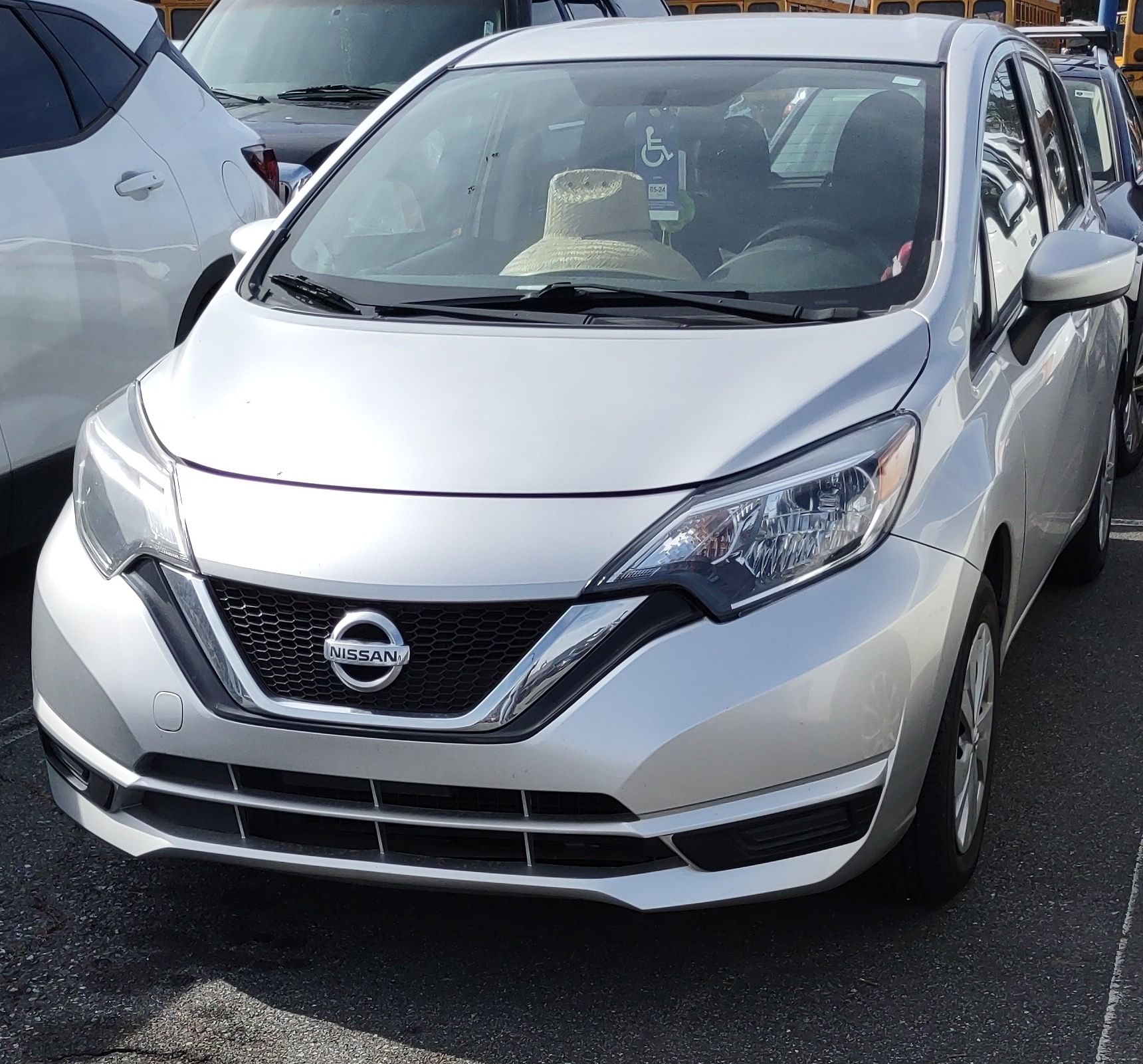Engine and Transmission
The Versa sedan is powered by a 1.6-liter inline-four engine. The small motor is rated for 109 horsepower and 107 lb-ft of torque. Gear shifting duties are done by a continuously variable transmission (CVT). The engine is underpowered, it struggles to move almost 2500 lbs.
So it will take some time before you reach decent speeds. The sluggish power delivery is majorly due to the CVT transmission which hesitates to put the power down as and when required. The infamous rubberband effect is strong with this one.
|
Models
|
Nissan Versa Note
|
Kia Rio Hatchback
|
Honda Fit
|
Chevrolet Sonic Hatchback
|
Hyundai Veloster
|
|
MSRP
|
$15,650
|
$16,400
|
$16,190
|
$19,420
|
$19,500
|
|
Engine
|
1.6L inline-four
|
1.6L inline-four
|
1.5L inline-four
|
1.4L Turbocharged I4
|
2.0L inline-four
|
|
Transmission
|
CVT
|
6-speed automatic
|
CVT
|
6-speed automatic
|
6-speed automatic
|
|
Horsepower
|
109rpm @ 6,000rpm
|
130hp @6300rpm
|
130hp @6600rpm
|
138hp @4900rpm
|
147hp @6200rpm
|
|
Torque
|
107lb-ft @ 4,400rpm
|
119 lb-ft @4850rpm
|
114lb-ft @4600rpm
|
148lb-ft @1850rpm
|
132lb-ft @4500rpm
|
The Nissan Versa can be used as a city commuter. Nissan Versa's power output is the lowest in the segment. You would be better off with selecting something a little more power. Honda Fit and Kia Forte offer 130 hp output while Chevy Sonic is equipped with a turbocharged engine. Hyundai Veloster comes with the biggest (2.0-liter) engine in this comparison.
How fast is the Nissan Versa?
Nissan Versa is not going to win you any races. The 0-60 mph run of the 2019 Nissan Versa happens in 9.9 seconds and the quarter-mile is passed in 17.6 seconds. It takes painfully long to achieve decent speeds. The CVT drones while doing higher speeds. There isn't much to say about the Nissan Versa's straight-line performance.
2019 Versa can tackle city driving but it is a different story when it comes to highway driving. You need to plan your overtaking maneuvers beforehand. You will also need to floor the gas pedal to get a move on and overwork the little engine, a lot more than any other subcompact.
|
Models
|
Nissan Versa Note
|
Kia Rio Hatchback
|
Honda Fit
|
Chevrolet Sonic Hatchback
|
Hyundai Veloster
|
|
0-60 MPH
|
9.9 sec*
|
8.5 sec
|
8.2 sec
|
8.2 sec*
|
8.2 sec
|
|
Quarter mile
|
17.6 sec*
|
16.7 sec
|
16.4 sec
|
N/A
|
16.4 sec
|
|
Engine
|
1.6L inline-four
|
1.6L inline-four
|
1.5L inline-four
|
1.4L Turbocharged I4
|
2.0L inline-four
|
|
Emission
(Tons/yr. of CO2 Emissions @ 15K mi/year)
|
5.9
|
5.5
|
4.9
|
5.7
|
6.3
|
Most of the cars in this comparison achieve their zero to sixty mph run in the sub-8-second window. Honda Fit, Chevy Sonic, and Hyundai Veloster tie for first place with their 8.2-second naught to sixty runs. Nissan Versa Note almost takes 10-seconds to achieve a similar feat.
What about the handling of the Nissan Versa?
The Nissan Versa is designed like a box rolling on wheels. The Versa doesn't respond well to any enthusiastic input from the driver. It is a budget sedan and its primary goal is to travel from point A to point B. The handling is not the strongest suit of the Versa. The tall body means a lot of body roll when you corner.
The Versa has been equipped with skinnier tires in favor of fuel efficiency which take away all the little fun you can have. The front end washes out as you enter a corner with a little more than required enthusiasm.
The steering is electric, just like every other budget car. It is light, easy to maneuver around town but it feels dead and artificial all the time. The soft suspension setup is the talking for the Nissan Versa. It is designed to haul passengers in comfort and it does that quite well.
How good is the braking system on the Nissan Versa?
The Versa also follows the industry trend of using discs brakes at the front and drum brakes at the rear to keep the costs in check as this is a budget segment. Versa sedan covers 188 feet before coming to a halt from 70 mph. The Honda Fit has the best in comparison stopping power, Honda Fit takes 179 feet to stop from a similar speed.
|
Model
|
Nissan Versa
|
Kia Rio
|
Honda Fit
|
Chevrolet Sonic
|
Hyundai Veloster
|
|
Brake Front
|
10"
|
11"
|
10.3"
|
10.8"
|
11"
|
|
Brake Rear
|
8"
|
8"
|
7.9"
|
9"
|
10.3"
|
|
Curb Weight
|
2,474 lbs
|
2714 lbs
|
2568 lbs
|
2819 lbs
|
2899 lbs
|
|
60-0 MPH
|
129 ft.
|
110 ft.
|
134 ft.
|
124 ft.
|
N/A
|
The Nissan Versa is one of the lightest cars in its segment and here, it is the lightest by some margin. It felt strong on the brakes and light on its feet which helped change directions with ease. That being said, the Kia Rio gets the biggest set of brakes and takes the least distance to come to a halt.



